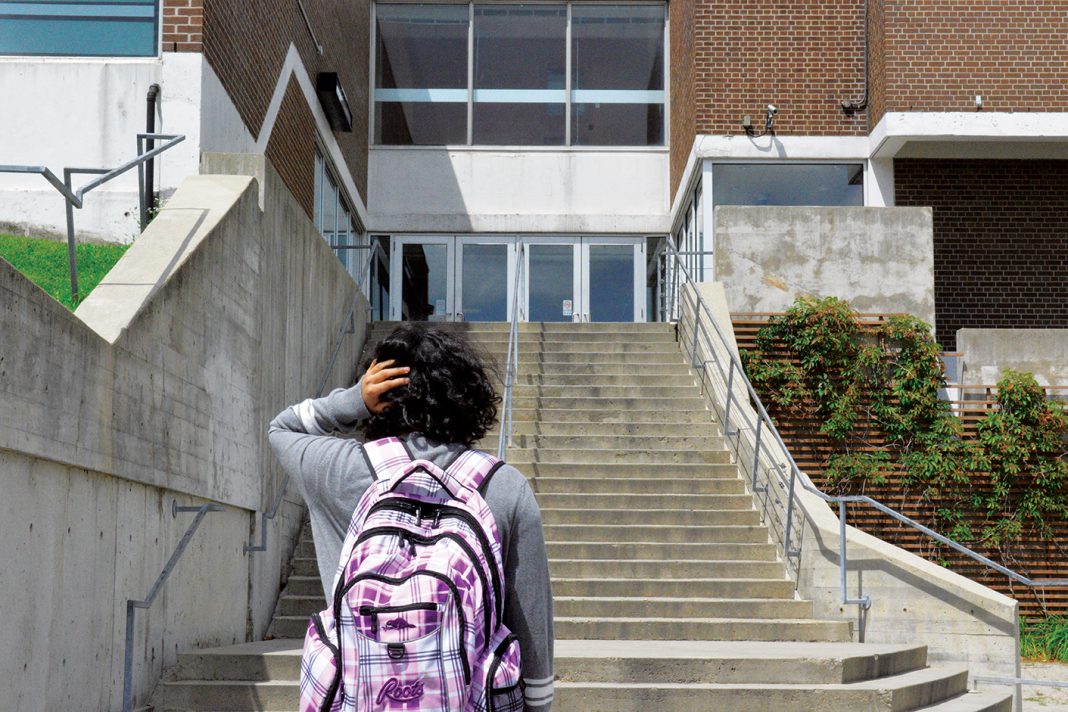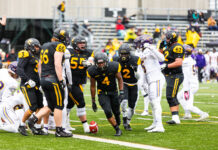Living in a new city and having to make new friends is often a challenge for many first-year university students. Add to that a different culture and language, and the extra challenges that international students face can sometimes be quite overwhelming.
Fortunately, the University of Waterloo has many support systems in place for international students to help them adjust to life at UW and make them feel at home.
Abimbola Grace Oyeyi, a graduate student from Nigeria studying civil engineering, said that she has had a positive experience at UW overall. “I find that everyone is helpful, from the professors to colleagues and people around. Although I am still getting used to the weather, the people and the [support] system … [make] it enjoyable,” Oyeyi said. Oyeyi cited the weather, the different tax system, finding her way around the city, and being away from her family as her main challenges.
In spite of these difficulties, Oyeyi said that she thinks she has made the right choice coming to study at UW. “I do not think I was fully prepared. I did not fully research my courses, accommodation, and a whole lot of other details,” Oyeyi confessed, but added, “I find Health Services on the campus very helpful as I have had to go there a [couple] of times.”
Jasmine Grannum, an international student from St. Maarten who is currently in Arts and Business, is also happy with her stay at UW. “I would say that I have had an overall positive experience at UW. The institution has provided me with a stable and safe environment where I can focus and succeed academically,” Grannum said. “For my second year, I could finally say that I do feel welcomed at UW.”
Grannum’s challenges included adapting to a new culture, finding new friends, and keeping physically active. Grannum acknowledged, “Where I come from, people are much more embracing and open in gesture and in conversation. I was shocked a bit when I came here and people weren’t as open. Lots of people were consumed by their own tasks, and socialized with the individuals they already knew which made it hard to find a stable social group. What was most stressful to me was trying to adapt to a completely new environment — learning new street names, and trying to figure out how to get to places.”
Most international students also reported experiencing homesickness — distress or anxiety caused by an extended separation from home. Dana Alsabbah, an international student from Syria, described her homesickness in the first few months at UW, highlighting some of the common symptoms. “Since I arrived in Canada, I did not like the place anymore, everything was strange and new for me, I [missed] everything in my country and I could not accept anything [at] first,” she confided. Grannum also admits that she was homesick for a while explaining, “I’ve experienced homesickness during my 1B winter term. I hadn’t been back home since I came to Canada that fall, which made me want to go home even more. I missed my parents, I missed the warmth, and I missed not having someone that I could rely on when I was feeling down like I did at home.”
Kevin Li, co-ordinator of the International Student Experience at UW, is well aware of the many challenges that international students face. According to Li, these challenges include “the language barrier … cultural differences … academic culture. For example, some of the rules that we have here at the university [are] just different than what they are used to. Another common problem that many international students experience is not feeling like they have a peer support network because they’re far away from what they are used to … [and with] the language barrier and academic stress, it’s hard for them to make friends, at least in the beginning.”
Li is in charge of running the International Peer Community (IPC) program out of the Student Success Office. Li explained, “Once students arrive in Waterloo … we provide new international student transition programs to help them adjust to life in Canada. Students are matched with upper-year volunteer mentors who can answer their questions, introduce them to Canadian culture and campus resources, help them improve [their] English and make new friends… So they get a variety of different experiences, but most importantly we just want to provide the peer-to-peer support to them. It’s a fairly new program, we only started this in fall 2015.” The IPC program is very popular with UW international students and Li said that he is getting emails from many of them asking if they can join.
Iliana Cecibel Tacuri Siguenza, an international student from Equador, came to UW primarily to study English and is part of the Bridges To Academic Success in English (BASE) Program at Renison College, a special program designed for international students who need extra help with learning the English language. Siguenza explained, “The BASE program has three courses: writing, academic, and oral skills. BASE students also have to take a course related with our program or faculty.” Siguenza plans to stay in Canada for five years and continue with her study in the Global Business and Digital Arts program next year at UW.
Ryan Connell, student experience co-ordinator for the Renison English Language Institute, explained that, “Students in BASE have been accepted to UWaterloo for their strong academic marks in high school; however, they did not meet the English Language Requirement needed to study at UWaterloo.”
Renison currently has 49 international students living in residence who come from more than 35 different countries, including Brazil, China, Equador, Saudi Arabia, Italy, Mexico, Japan, Korea, Iran, and Turkey. In addition to BASE, Renison also offers the English for Academic Success (EFAS) program as well as the English for Multilingual Speakers credit courses for both UW undergraduate and graduate students.
Disclaimer: Jasmine Grannum, who was interviewed for this piece, is also an editor for Imprint.































